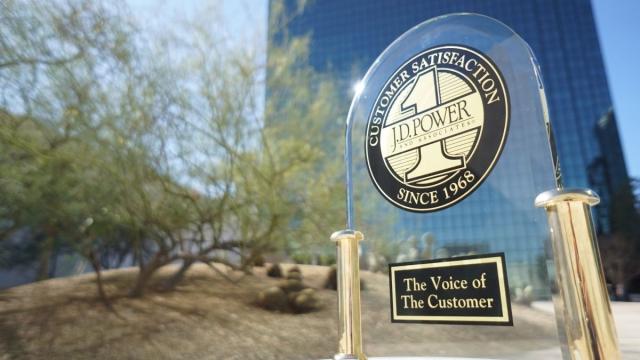Sustainable Fashion Week: Dress cute but make it eco-friendly

(Saporta Report) – Thanks to targeted social media ads and brand deals with your favorite celebrities, it can be tempting to buy a new outfit or the latest pair of shoes.
But in 2018, around 12,970 tons of clothes and shoes were manufactured, according to the most recent data provided by the EPA. About 9,070 tons, though, ended up in a landfill.
Those numbers are jarring enough, but when you consider that it takes about 713 gallons of water to produce the cotton needed for a t-shirt, according to the World Wildlife Fund, you might think twice before filling up your online shopping cart.
Tanjuria Willis, owner of eKlozet Designer Consignment in Buckhead, wants to bring more attention to being eco-friendly in clothing choices. To that end, she created the first annual Sustainable Fashion Week, which kicks off on Oct. 28.
The weekend’s schedule includes discussions with international experts about sustainability and separating from fast fashion, along with advice to designers and consumers alike about having a lighter fashion footprint. Both nights will end with a fashion show featuring local designers.
The event will also feature a Sustainable Fashion Week Marketplace where folks can meet local small businesses and purchase their products.
For Willis, hosting a fashion week centered around sustainability has been “a real dream of mine for a couple of years now.”
When she started eKlozet, a store that’s sustainable in nature with its second-hand clothing, customers had questions about supporting sustainable fashion. Willis saw an opportunity to educate the community and elevate local designers — thus, Sustainable Fashion Week was born.
“We have international panels from the U.K., from Germany and representing Africa, as well as here in the U.S. That represents that it’s really a global problem, not just in Atlanta,” she said. “The problem is everywhere, and it’s something that we all have to talk about, and we all have to take part in.”
Willis adds that many factors go into whether an item of clothing is eco-friendly — its lifecycle, if it contains biodegradable materials, the water usage for production and the manufacturer’s labor practices, to name a few.
For anyone looking to add to their wardrobe with Mother Nature in mind, Willis recommends starting small.
“Take it one step at a time. You don’t have to throw out your entire wardrobe,” she said. “But as you start to incorporate new things into your wardrobe, I would say to read the labels, and do understand things like sustainable chemical dyes [and] the effects that it can have, even with your body, as those fabrics start to break down the chemicals that release into the environment.”
Willis continued: “If you have t-shirts that you’re cleaning out of your drawer, maybe instead of throwing them in the trash, you use them for old rags. There are ways that you can use different items and materials that you have in your possession and start to incorporate those in a sustainable way.”
Willis believes that sustainability should be a priority for everyone because we all share the Earth as our home.
When the fashion week comes to a close, Willis hopes “that people walk away with a sense that they can live more sustainably.”










